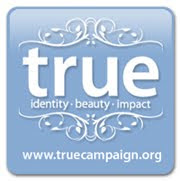I've been watching a program on Channel 4 called Young, Autistic and Stagestruck. It's about 10 young people with Autism of varying degrees who have come together to put on a stage show. The directors they are working with have never before worked with, or even met, someone with Autism. They have two weeks of workshops, one week of rehersal, and the final episode is The Show.
This show is interesting for many reasons: watching a group of young people with Autism being pushed and pulled out of their "autistic zone", seeing how normal and autistic people merge and work together, seeing problem resolution, anger management, stress relief and relationship building both within the autistic group and among the whole ensemble. But the most interesting part to me is about perceptions.
How do we perceive ourselves? How do others perceive us? If you are "normal" with a minor variation, say you have a large birthmark on your cheek, then you might find the variation is not extreme enough to warrant an explanation. Or if it is there is a simple one: "yes, I have a large birthmark. I've had it from birth." If you are "normal" but speak a different language, you might say "yes, I am from Romania."
If you are normal with a "major" variation, say you are in a wheelchair, you will be called on to account for it: "What happened to you?" To which you say, "I was in an accident" or something that makes the wheelchair make sense. Easy.
The problem is, however, when you are "abnormal" in either behaviour, intellect or socialisation, particularly if you look "normal." Then there are only two choices: you see yourself as abnormal, in which case you explain the aberrance: "I am autistic," for instance. Or, you see yourself as normal, in which case you give the other person the subconscious responsibility for finding a way to explain why you do not fit their categories. Either 1) the categories stink and we need new ones, 2) you misunderstood the categories and this person actually fits them perfectly, or 3) you really don't fit the categories and there is an underlying reason that we're not allowed to talk about.
What got me thinking about this is when two of the autistic kids say "I am normal", and I found myself thinking "What?" I guess it boils down to two ways to see the world: either we are all normal and just have social misunderstandings that cause us to see people who are "different" wrongly, or there is a 'normal', broadly understood, and some people just don't fit in. If normal is what you can expect to encounter 99% of the time, then something has to explain the remaining 1%.
I don't think there is a solid answer to this. I've had discussions about it that never reached their conclusion. I look at Adam, and, as lovely as he is, he is not "normal". I'm willing to say that, even if many people would not be. I could justify, rationalise or refer to textbooks, but the fact of the matter is that I have to approach him differently from Caleb, for instance. I have to speak differently, train differently, play differently, and love differently. Either he is normal with a major variation, or he is "different", special, extraordinary, to use American speak.
I suppose at the end of the day, whether or not someone is "normal" is also another way to say whether or not I am frustrated. You see the directors trying to work with these young people. They are doing what they normally do but it doesn't work, therefore they see the kids as "abnormal". I try to love Adam in the way I love Caleb and it doesn't work, therefore I see him as different. Maybe that is something to keep in mind, to keep processing as I go along. Is he abnormal? Am I uncreative? Are we still earthly beings who see in a mirror dimly? Is the nature of being a person, created in the image of God, so difficult to comprehend that I look for any loopholes with which to let myself off when I "fail"?
Let's see if I have it figured out by episode 4!







1 comment:
even for us 'normal' people, normal can be a sticky issue. i have no idea how to answer the question, but i know it's an important one.
Post a Comment